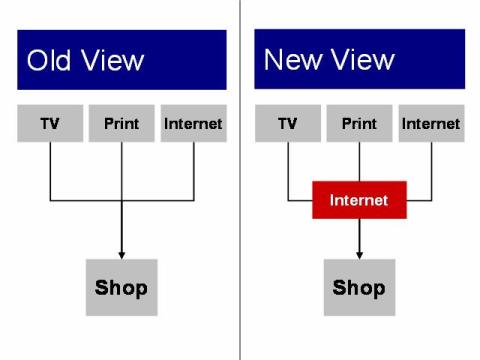 John Battelle has got a series of very good articles on online marketing on his blog. Check them out here and here. A third post is yet to be published.
John Battelle has got a series of very good articles on online marketing on his blog. Check them out here and here. A third post is yet to be published.
Both articles are on building brands online. Basically what John is saying is that online advertising works well where you have very strong brands that attract a particular type of user that can then be marketed to. These brands can command higher CPMs that generic publishers, for example. The yet to be solved problem (solution probably to be revelead in his third article) is about the fact that online formats for marketing don’t really work that well, or not as well as online formats (he uses TV ads and magazine ads as examples). An example might be that car ads on TV or in a magazine leave a much bigger impact with the viewer than banner ads do.
Two things came to my mind when I read this.
The first one was that it is logical (and actually obvious) that when you attract a certain type of viewer to a site you can command high CPMs. After all, it simply means that one can target ads better to a more relevent audience. The key problem is that one actually doesn’t know who is looking at what on generic sites, making targeting difficult.
My second thought was that at least one format that works extremly well for advertising online has already been invented. It is called free products. Why do you tink does Google have some 50-100 free products out there? Just for fun? Or because the revenue avalanche is going to hit them via these products? No, the reason is much simpler. It attracts users. Google embeds their brand in their brains every day. They then go out and use Google search. This is a great way to build a brand online.
I believe there are many ways in which publishers, manufacturing, and service companies can build their brand online. One way to do it is via free services. I am sure people will come up with other ways. I think John is right to say that the classic online banner ads won’t do the trick. But look at the bright side: if it was that easy, what would you need great marketers for?
![]()
![]() Subscribe in a Reader
Subscribe in a Reader ![]() Subscribe by Email
Subscribe by Email



